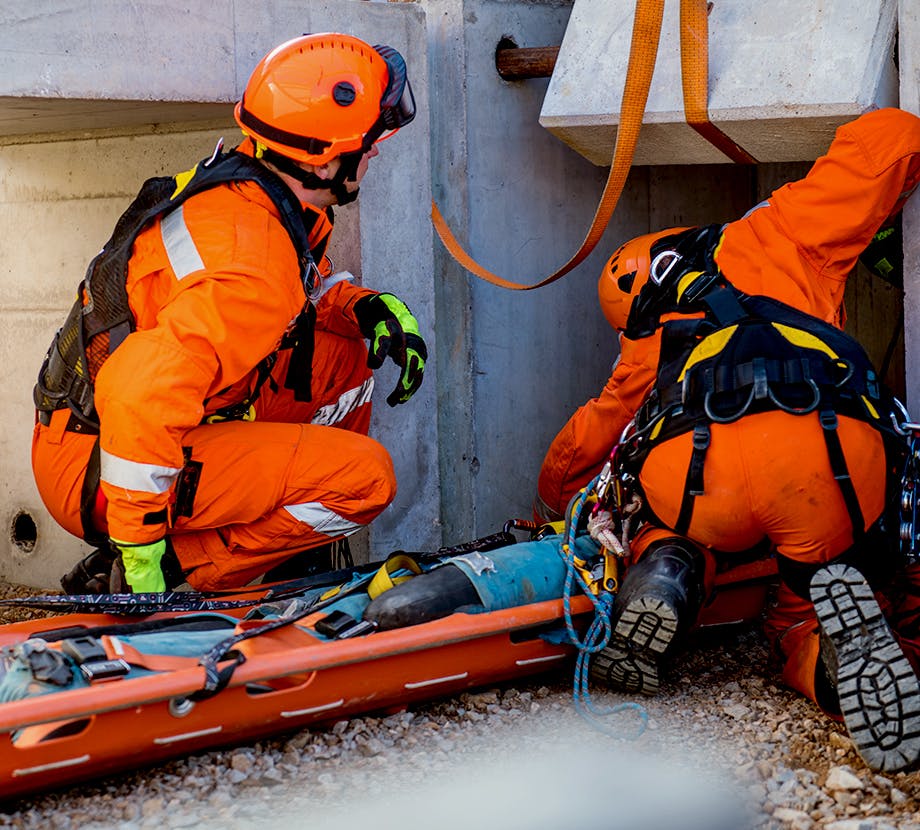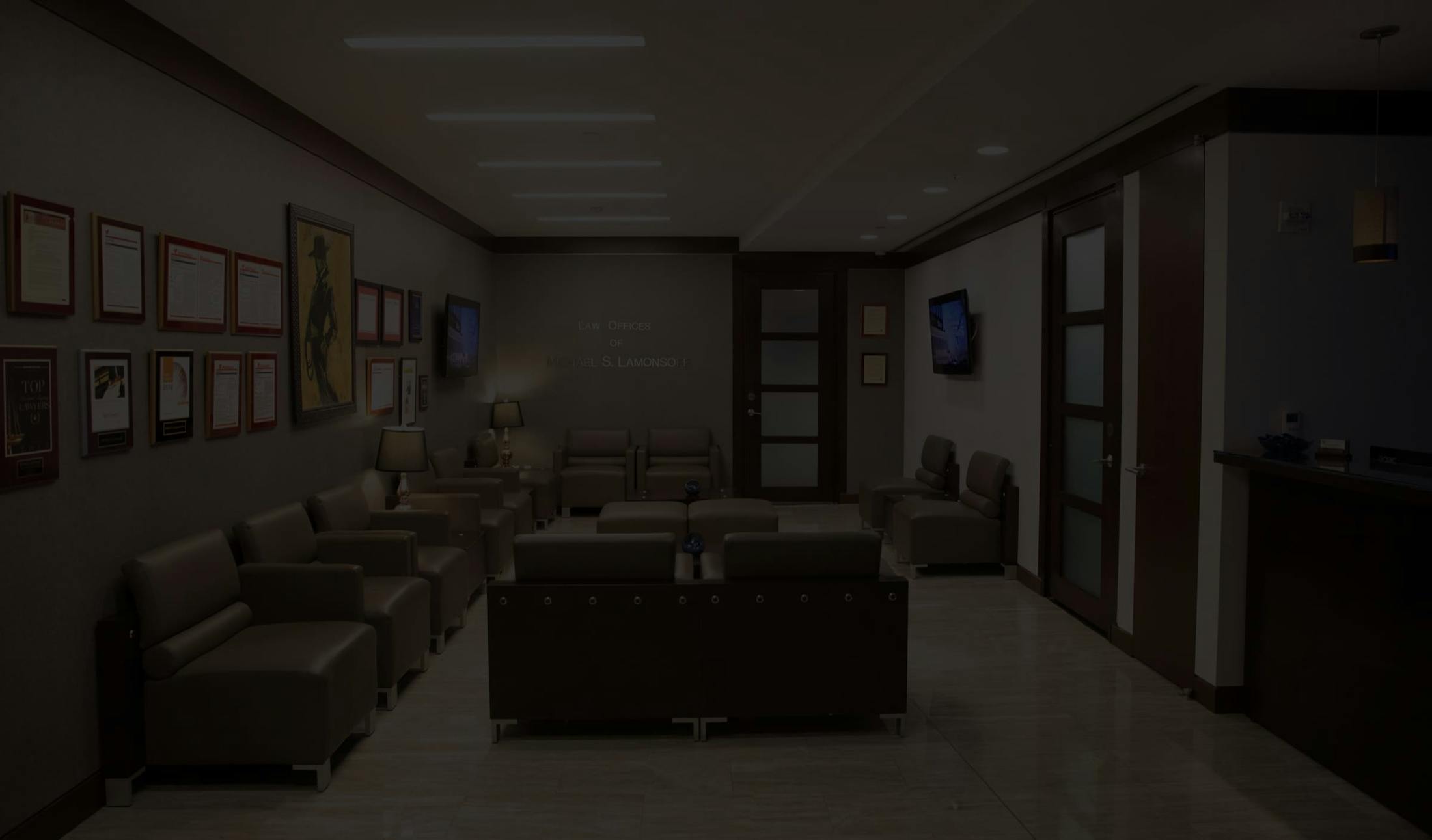$37,000,000
Awarded to an elevator mechanic who was injured in a construction accident.
$16,000,000
Verdict against the New York City Department of Education for a young girl who was sexually abused by her teacher over a two-year period.
14,000,000
settlement at trial for injured worker
$12,157,000
To clients who were victims of a train derailment.
$12,000,000
Total compensation (which included the negotiation of the workers’ compensation lien) awarded to a construction worker who fell over 15 feet after falling through plywood that covered a hole at the worksite.
$11,750,000
Total compensation awarded to Fernando Bermudez, who spent 18 years in prison as a result of being wrongfully convicted for a murder he did not commit.
$11,000,000
$11,000,000 in total. $10,000,000.00 verdict plus an estimated pre-trial interest of approximately $1,000,000.00 to a victim of a bus accident
$9,000,000
Verdict against the City of New York for a pastor of a church, who was falsely arrested after being racially profiled.
$7,000,000
Awarded to a construction laborer who had sheets of metal fall on him at a construction site.
$2,150,000
Awarded to victim of a slip and fall on ice
$1,250,000
Awarded to electrician construction worker for biceps rupture
$1,245,000
Settlement for a pedestrian who fell down a staircase
$1,000,000
Settlement awarded to an injured pedestrian from a slip & fall accident.
$1,000,000
Settlement for injured motorist
$1,000,000
Settlement for man who fell from wheelchair
$1,000,000
Settlement for shop patron
$1,000,000
Awarded to a construction worker who while walking at a construction site tripped and fell over a pipe protruding from the ground.
$1,000,000
Awarded to pedestrian struck by truck
$1,000,000
Awarded to our client who while driving his car was sideswiped by another vehicle.
$1,000,000
Settlement awarded to a client before trial, who was rear-ended by a pick-up truck.
$1,000,000
Settlement awarded to a client before trial, who tripped over broken pavement in a crosswalk while crossing the street.
$1,000,000
Settlement for a fallen construction worker.
$1,000,000
Awarded to a union plasterer who was injured on the job when he was burned by a torch.
$1,000,000
Awarded to a construction worker who fell through a skylight in a warehouse.
$1,000,000
Settlement for a NYPD traffic officer whose vehicle was struck by a negligently operated forklift, causing serious injuries.
$1,000,000
Settlement for a man rear-ended at a stoplight.
$1,000,050
Verdict awarded to our client, a taxi driver rear-ended in an automobile accident
$1,000,050
Jury award to a driver of a vehicle that was rear-ended by an MTA bus.
$1,000,180
Awarded to the family of a one-year-old infant who fell and drowned in a full bucket placed to catch water leaking from a ceiling.
$1,245,000
Settlement for fall down staircase
$1,250,000
Settlement for injured motorist
$1,250,000
Settlement for victim of ceiling collapse in his Bronx apartment.
$1,250,000
Awarded to motorcyclist struck by a car.
$1,250,000
Awarded to a 35-year-old taxi cab driver whose vehicle was rear-ended by another vehicle.
$1,275,000
Settlement awarded to pedestrian struck by Honda Civic.
$1,350,000
Settlement obtained for a 14-year-old high school freshman who was injured in a road rage pedestrian accident.
$1,375,000
Awarded to our client who was operating a bicycle in the bike lane when a short school bus drifted into his lane and struck him.
$1,400,000
Settlement for motorist struck by construction gate.
$1,450,000
Awarded to a construction laborer.
$1,495,000
Awarded to a passenger of a vehicle in which the driver lost control and struck a tree.
$1,500,000
Settlement awarded to a union construction worker who was injured when he was struck by concrete/slurry that fell out of the hose and the boom due to a failure of a coupling device.
$1,500,000
Settlement for victim of slip and fall
$1,500,000
Settlement awarded to our client, who was injured when she fell down an open cellar hatch door leading to a storage area.
$1,500,000
Recovered in a case involving a construction worker who was injured when he fell from an unsecured scaffold.
$1,500,000
Awarded to a former NYC police officer injured in the line of duty.
$1,600,000
Awarded to a woman who was a passenger in a vehicle rear-ended by an 18-wheeler.
$1,637,500
Verdict in Westchester County, the highest verdict in Westchester County to date this year.
$1,650,000
Awarded to a pedestrian who was injured when he was struck by a car.
$1,675,000
Awarded to the driver of a car that was struck by another car.
$1,700,000
Awarded to a worker who was performing exterminating services at a building when he stepped and fell into a sewage drain hole.
$1,750,000
Awarded to a construction worker who was injured when a beam impacted his left ankle.
$1,750,000
Awarded to a bicyclist who was injured when he was struck by a car.
$1,785,000
Settlement for a woman who was severely injured because of a mis-leveled elevator.
$1,800,000
Awarded to the passenger of a cab.
$1,950,000
Awarded to a laborer who was severely injured when a platform he was working on collapsed.
$2,000,000
Awarded to a victim of a ceiling collapse.
$2,000,000
Settlement for injured construction worker
$2,000,000
Awarded to a union carpenter injured on a construction site.
$2,000,000
Settlement obtained for a client sideswiped by Truck.
$2,000,000
Award obtained for a construction worker who was hit on his head by a falling object.
$2,000,000
Awarded to a construction worker laborer who was struck by an unsecure beam.
$2,000,000
Recovered for a sanitation worker who was hurt when a garbage truck crashed into his vehicle, causing serious injuries.
$2,000,000
Obtained for a woman who was injured when her vehicle was rear-ended by a box truck.
$2,000,000
Awarded to a construction worker who was injured when a trench collapsed.
$2,000,000
Recovered for a 14-year-old boy who was struck by a van while riding a bicycle.
$2,100,000
Settlement for a construction worker injured by heavy equipment.
$2,130,000
Settlement for twenty-eight year old rear-ended by dump truck.
$2,152,500
Settlement for passenger in vehicle crash.
$2,200,000
Awarded to a construction worker who was catastrophically injured when a trailer rolled back and crushed him against a jersey barrier.
$2,350,000
Awarded to a construction laborer who sustained serious injuries when he fell into an unprotected hole at a jobsite.
$2,400,000
Awarded to victims injured due to train derailment
$2,400,000
Settlement awarded to a construction worker injured.
$2,400,000
Settlement obtained for a motorist rear ended with his hazard lights on.
$2,400,000
Awarded to a construction carpenter who sustained serious injuries when struck by plywood falling from the floor above.
$2,500,000
Awarded to an electrician injured when he fell from an unsecured ladder
$2,500,000
Awarded to a sheet metal worker who was working at a construction site of a large commercial building
$2,500,000
Awarded to our client who was t–boned and injured in an automobile accident.
$2,500,000
Awarded in a case involving a union laborer who was injured when struck by improperly secured lumber.
$2,750,000
Awarded to a construction worker, when he stepped into an unsecured opening causing injuries to his knee and lower back.
$2,750,000
Awarded to our client who stopped his work SUV and was struck by another vehicle that backed into him.
$2,785,668
Verdict against a repossession company whose driver struck our client while she was trying to remove her personal possessions from her vehicle.
$2,800,000
Settlement awarded to our client who was injured when she was struck by a vehicle.
$2,800,000
Settlement for an iron worker who suffered a slip and fall on a construction site that caused significant lower back injuries.
$3,100,000
Awarded to a Car accident victim.
$3,100,000
Awarded to a union construction worker injured in a fall.
$3,200,000
Recovered in a case involving a construction worker who was injured when he was struck by falling construction material.
$3,500,000
Awarded to an injured construction worker after he tripped and fell over a plumbing pipe that was covered and obscured by snow at a construction site.
$3,500,000
Awarded to motorist struck by box truck.
$3,710,000
Awarded to the victims of the 2012 Empire State Building shootings, innocent bystanders struck by stray bullets from NYC Police Officers.
$3,750,000
Awarded to a construction worker who was injured when the ceiling at a construction site he was working at collapsed, sending debris down onto him.
$4,000,000
Settlement at trial for injured pedestrian
$4,000,000
Settlement at trial for injured worker
$4,000,000
Awarded to a construction laborer
$4,000,000
For family members of victims of the fatal American Flight 587 airline disaster.
$4,010,000
Awarded to bystanders injured by police gunfire in the notorious Empire State Building shooting.
$4,100,000
Settlement in a case involving a construction worker who was injured when he tripped over a loose beam.
$4,500,000
Settlement awarded to our client, a construction worker who was injured when a beam fell on his hand.
$4,602,312
Total verdict awarded $4,602,312 to our client who was rear ended by the defendant’s vehicle
$4,750,000
Awarded to a construction worker who was injured when a concrete slab fell and struck him, causing multiple injuries.
$5,000,000
Awarded to a construction laborer injured on a construction site when debris fell him.
$5,000,000
Settlement awarded to a woman tripped and fell and broke her foot which later required a partial amputation.
$5,500,000
Verdict awarded to a construction worker who was injured when a wood bracing collapsed while he was exiting a ditch.
$5,750,000
Awarded to a laborer injured when he fell at a construction site.
$6,500,000
Settlement awarded to a union construction worker who fell from an unsecured ladder.
$2,980,000
Awarded to a construction worker who was severely injured in a construction accident.
$3,000,000
Verdict awarded for pedestrian struck by municipal bus
$4,800,000
Awarded to a construction mason as a settlement at trial
$2,980,000
Awarded to a construction worker performing fire watch
$1,100,000
Settlement awarded to a woman slipped and fell seriously injuring her leg requiring surgery.
$1,000,000
Settlement awarded to a grocery store employee who suffered serious injuries while unloading a delivery truck.








